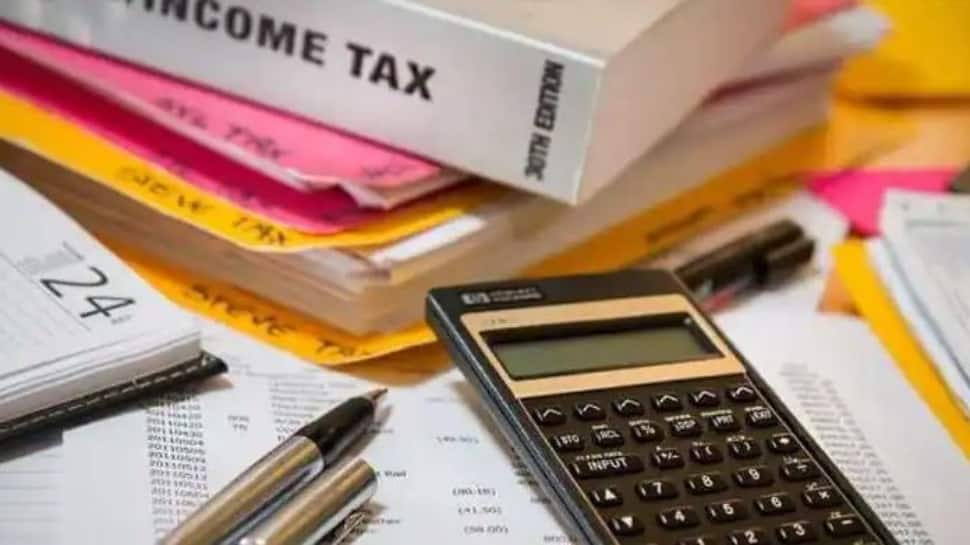Here’s how the new GST structure impacts restaurants and food delivery apps – shift of liability on 17th september

GST: We live in a country where development takes place every single day. Each day, some new infrastructure plans are introduced and in recent years, this development prospect has risen to a very great level.
However, for this development, the government needs funding and therefore people pay taxes. Until a few years ago, there were many indirect taxes that the people had to pay. However, the large number of indirect taxes often confused the people and many a times led to tax evasion.
This was continued for a very long period of time until 1 July 2017 when Goods and Services Tax (GST) was introduced and replaced all the indirect taxes. After that, only a single unified indirect tax had to be paid across the nation. It should be noted that many improvements and changes have been made in the GST ever since it was introduced to improve the tax system.
In this article, we will be talking about one such change in the system of GST which will definitely have an effect on the economy. Yes, we are talking about the tweaked rates of GST for drugs, along with the shift of liability from restaurants to food delivery firms. Let us know every single detail of this new change through this article.
What happened on Friday, 17 September?
On Friday, the GST council of the country met in Lucknow and held a meeting. It was the first physical meeting after two long years- thank the COVID-19 pandemic. The council took many key decisions during this meeting which would have a great impact on the economy, and therefore should be discussed.
All the key decisions which the GST council took during the meeting in Lucknow were available to the general public soon after the meeting was finished and anyone could read and learn about those decisions.
What were the key decisions?
The major two key decisions were rate cuts for a number of Cancer and COVID-19 related medicines and the shift of liability of tax payment to restaurant delivery aggregators and not the restaurants were the two key decisions that were taken during the 45th meeting of the GST council which was held in Lucknow.

Moreover, the council during the meeting also decided to continue the compensation cess levy on the borrowed funds beyond the month of June 2022. There was also a proposal to bring petroleum products under the indirect tax regime. However, the council decided not to keep the proposal in its ambit, as of now.
Concessional rates for COVID-19 medicines.

Concessional tax rates were provided earlier on the medicines required in the treatment of COVID-19. This was done in order to help people during the hard time when they have no source of income.
The concession on these medicines was valid only till 30 September. However, now they have been extended to December 31st, providing help to the people. The concession on different medicines are different and GST is charged as follows: Remedesvir( 5 per cent), Tocilizumab (nil), Amphotericin (nil) and anticoagulants like Heparin ( 5 per cent). However, the concession which was provided on the medical equipment will last only till 30 September and has not been extended.
There are many other COVID-19 related medicines that have been given concession and the tax rate is reduced to only 5 per cent with the aim to financially aid the suffering people. This concession has been extended till 31 December and this extension was decided in the recent meeting of the GST council.
Moreover, the council in its meeting has also decided to completely remove GST on the import of muscular atrophy drugs like the Zolegensma and Viltepso. The cost of these medicines is in crores, and therefore this step to complete remove GST from these medicines is a great way of helping the people in this financial battle.
Moreover, Keytruda, a medicine used during the treatment of cancer is also a part of this concession. The GST charged on it was 12 per cent earlier but it is now reduced to only 5 per cent.

However, it is not just the medicines that have a part of this concession. The GST council also cut GST rates on many items. The tax rate on the rice kernels has been reduced from 18 per cent to 5 per cent while on the biodiesel from 12 per cent to 5 per cent. The national permit fee for the carriage of goods has been exempted too.
The other important decision taken by the council in this issue is to put an end date of June 2022 to the provision of compensation mechanism which is mandated by the law. The levy of compensation cess will continue from July 2022 to March 226 in order to service the borrowing which had been reported earlier to bridge the gap in the years 2020-21 and 2021-2022.
What is the estimated debt, if you are wondering?
The estimated debt for the compensation paid to states is estimated near about 2.7 lakh crore, as reported by a Finance minister official. The amount of the debt for compensation is huge, but the provision of compensation was very necessary to protect and aid the people of the nation.
Let us now talk about the other major decision taken by the GST cabinet during their meeting in Lucknow. Yes, this is about the shift of liability of GST from restaurants to food delivery aggregators. Effective from January 1 next year, the council has decided to make e-commerce food delivery aggregators which take food from restaurants and deliver them to homes liable for payment of the Goods and Services Tax.
Earlier, the liability was on the restaurants but after this decision has been taken by the council, the liability will shift to food delivery aggregators and there will be no liability on the restaurants.
The council also said that they will be looking at rationalising the rate under the inverted duty structure and will also take compliance measures through e-way bills and composition schemes. According to the council, two groups of ministers will be constituted for the same.
What is the GST council doing for the issue of correcting the structure?
According to the official reports, the council has decided to set up a GoM to look through the issue of correction of the inverted duty structure for major sectors of the country. Moreover, the GoM will rationalise and review the tax rate exemptions from the point of interest of revenue augmentation, as tax contributes majorly to the total revenue generation of the government.
It was also decided previously to set up GoM to consider the technological requirements for effective compliance including monitoring through improved e-way bill systems, FASTag Data and also to strengthen the institutional mechanism for sharing of Intelligence and coordinated enforcement actions by both the Centre and the state government.
At last, the GST rates will be changed for the footwear and textile sector with the main purpose of correcting the inverted duty structure currently prevailing in the nation. However, this change has been deferred till the 1st of January, 2022. Changes in the GST rates will surely take place in many sectors but it is only for the good of all the people in the country, as a correct taxation system is a must for a nation.
Edited by Sanjana Simlai.




